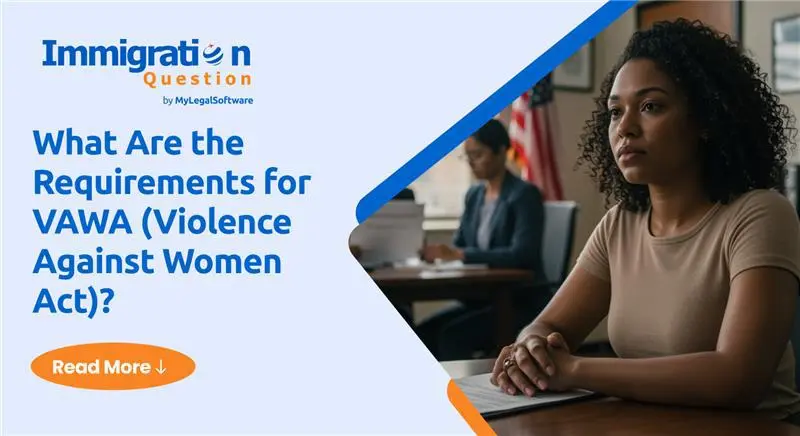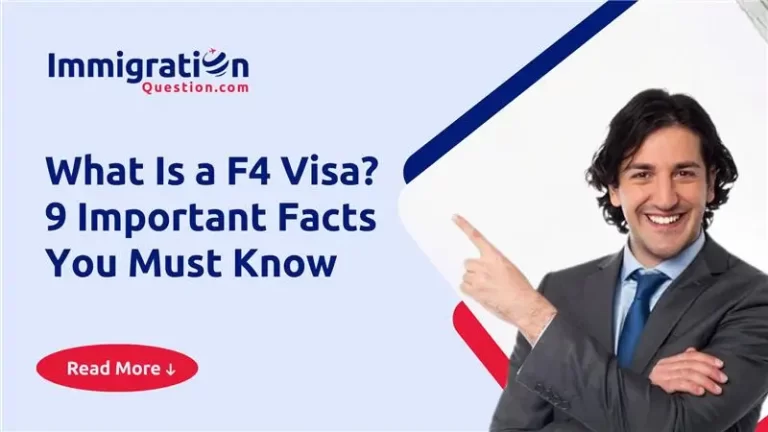If you’ve experienced abuse by a U.S. citizen or lawful permanent resident spouse, parent, or child, you may qualify for protection under VAWA. The Violence Against Women Act (VAWA) is a life-changing path for immigrant victims of domestic violence. It allows you to self-petition for legal status—without the abuser’s knowledge or involvement.
This guide answers frequently asked questions on who qualifies, what you must apply, and how an immigration attorney can help you find safety and a fresh start.
Q: What Is VAWA?
A: VAWA is a U.S. law that assists immigrants who have been abused or subjected to extreme cruelty by a U.S. citizen or green card holder family member. It allows victims to petition for a green card without their abuser’s consent or participation.
Although it’s called the Violence Against Women Act, VAWA is for everyone—women, men, and non-binary people can all apply.
Q: Who Is Eligible to Apply for VAWA?
A: You can apply for VAWA if you are:
- The spouse (or former spouse) of a U.S. citizen or lawful permanent resident who abused you
- The child (under 21, unmarried) of a U.S. citizen or lawful permanent resident who abused you
- The parent of a U.S. citizen (21 or older) who abused you
Importantly, your relationship with the abuser must have included violence, cruelty, or emotional harm, not just disagreements or household conflict.
Q: What Are the Key Requirements for a VAWA Petition?
A: To be eligible for VAWA, you must meet these main requirements:
- You have (or had) a qualifying relationship with the abuser (spouse, parent, or child)
- The abuser is a lawful U.S. citizen or legal permanent resident
- You lived with the abuser at some point
- You experienced battery or extreme cruelty
- You are a person of good moral character
Q: What Counts as a Qualifying Relationship?
A: To qualify for VAWA, your relationship with the abuser must meet one of the following:
- Married to the abuser at the time of filing (or within 2 years of divorce caused by abuse)
- Parent of an abused child (or the abused child)
- Child of the abusive U.S. citizen or LPR
You’ll need proof of the relationship, such as marriage or birth certificates.
Q: What Does “Battery or Extreme Cruelty” Mean?
A: VAWA protection doesn’t require visible injuries. Abuse can include:
- Physical violence (hitting, slapping, choking)
- Verbal threats or intimidation
- Sexual abuse or manipulation
- Emotional or psychological control
- Financial control or isolation
- Immigration-based threats (e.g., “I’ll have you deported”)
You must show that the abuser harmed you in one or more of these ways.
Q: Do I Need to Live with the Abuser?
A: Yes. You must have lived with the abuser at some point. It doesn’t need to have been long, but you’ll need to show evidence like:
- Lease agreements or mail with both names
- Photos in the home
- Affidavits from friends, neighbors, or relatives
You don’t need to be living with the abuser now.
Q: What Does “Good Moral Character” Mean?
A: You’ll need to prove that you’re generally a law-abiding, responsible person. This usually means:
- No serious criminal records
- No history of immigration fraud
- You meet basic ethical standards in your community
You’ll include a personal statement and possibly character references from people who know you.
Q: What Documents Are Needed for a VAWA Petition?
A: To apply for VAWA, you’ll file Form I-360 and supporting documents. These may include:
- Proof of your relationship with the abuser
- Proof that the abuser is a U.S. citizen or green card holder
- A written personal statement describing the abuse
- Evidence of abuse (photos, police reports, restraining orders, medical records)
- Documents showing you lived with the abuser
- Character letters from people who know your situation
- A copy of your passport or other ID
The more supporting evidence you have, the stronger your petition will be.
Q: Will the Abuser Find Out?
A: No. VAWA is entirely confidential. Your petition is not shared with the abuser. U.S. Citizenship and Immigration Services (USCIS) will not notify them, even if you’re still married or living together.
This helps protect victims who may still be in dangerous or controlling situations.
Q: Can I Include My Children in a VAWA Petition?
A: Yes. If you are an abused spouse or parent, you can include your unmarried children under 21 in your petition.
If you’re the abused child of a citizen or LPR, you can’t include parents, but you may file for yourself.
Q: What Happens After I File for VAWA?
A: After submitting Form I-360 and your supporting documents:
- You’ll receive a receipt notice confirming USCIS has your application.
- USCIS may send a Request for Evidence (RFE) if more documentation is needed.
- If approved, you’ll receive a prima facie determination—a letter confirming your case’s validity.
- Once fully approved, you can apply for a green card (if eligible).
You may also become eligible for certain public benefits and a work permit while your case is pending.
Q: Can I Still Apply If I’m Undocumented or Have Overstayed My Visa?
A: Yes. One of the strengths of VAWA is that it provides relief even for those without legal status. You can apply for VAWA even if you’re undocumented, entered without inspection, or overstayed your visa.
However, every case is unique. Consulting an immigration attorney can help you understand your specific risks and options.
Final Thoughts
VAWA was designed to give immigrant victims of domestic violence a way out. If you qualify, you don’t have to suffer in silence—or depend on your abuser to fix your immigration status.
Whether you’re in an abusive marriage, living in fear of a controlling parent, or trying to protect your children, VAWA offers protection and a new beginning.
Need help filing a VAWA petition? Head to Immigration Question today to connect with licensed immigration attorneys who can guide you confidentially and compassionately.











